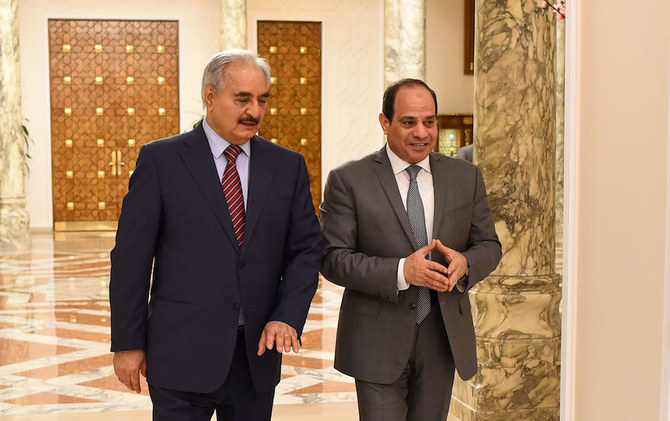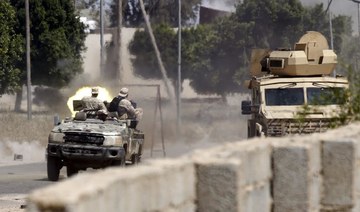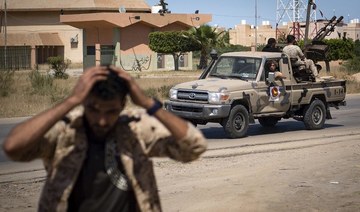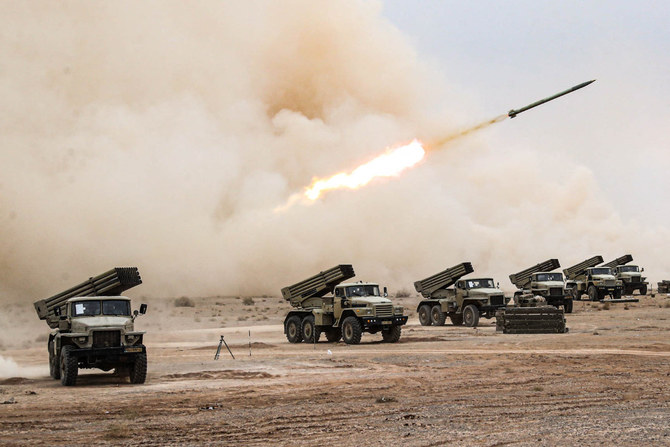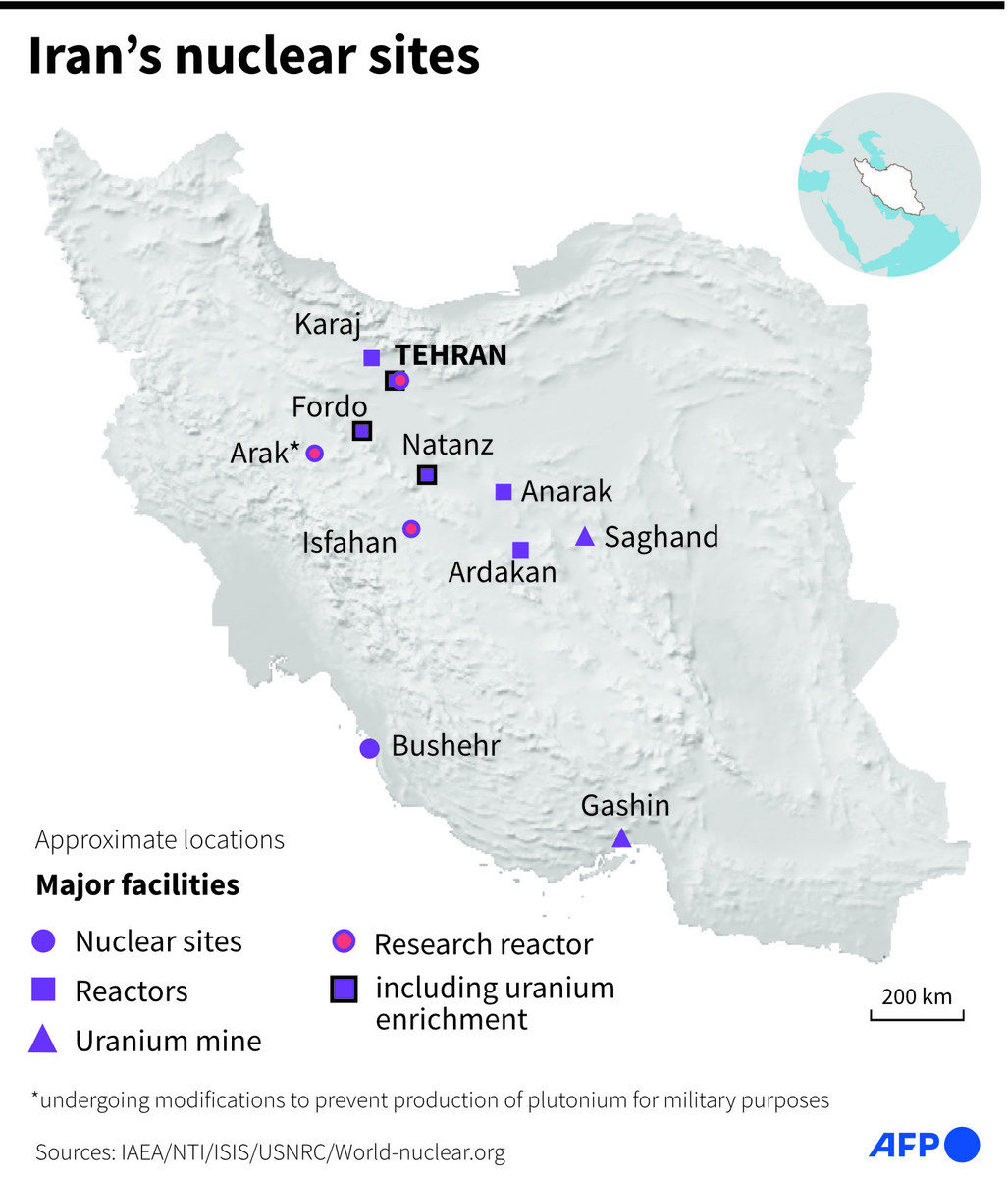CAIRO: Egypt’s President Abdel Fattah El-Sisi discussed Egypt’s support for the Libyan National Army (LNA) with its commander Khalifa Haftar on Thursday.
El-Sisi confirmed Egypt’s support for efforts to counter terrorism and militias in order to achieve safety and stability in Libya, a presidential spokesman said.
Last month, Haftar’s forces, which are loyal to the administration based in Eastern Libya, launched an offensive against the capital Tripoli which is held by a rival government.
The country has been divided since the downfall of Muammar Qaddafi, and Egypt has supported Haftar as a bulwark against extremist forces in Libya.
During Thursday’s meeting at the Ittihadiya presidential palace, Haftar explained Libyan efforts to address foreign interference in the country, which he said aims to smuggle weapons, fighters and foreign terrorists into Libya. Haftar has accused Turkey and Libya of backing hardline militias in the country.
Earlier, the head of Libya’s Tripoli-based government met British Prime Minister Theresa May and Foreign Secretary Jeremy Hunt in London.
Fayez Al-Sarraj, whose government is backed by the UN, has been in Europe this week seeking support against Haftar’s Tripoli offensive.
Haftar’s Libyan National Army launched an assault on Tripoli on April 4, setting off another deadly escalation in a country mired in violence since Qaddafi’s death after an Arab Spring uprising in 2011.
Britain has pushed for a resolution at the UN Security Council demanding a ceasefire in Libya but its efforts have foundered amid divisions at the world body.
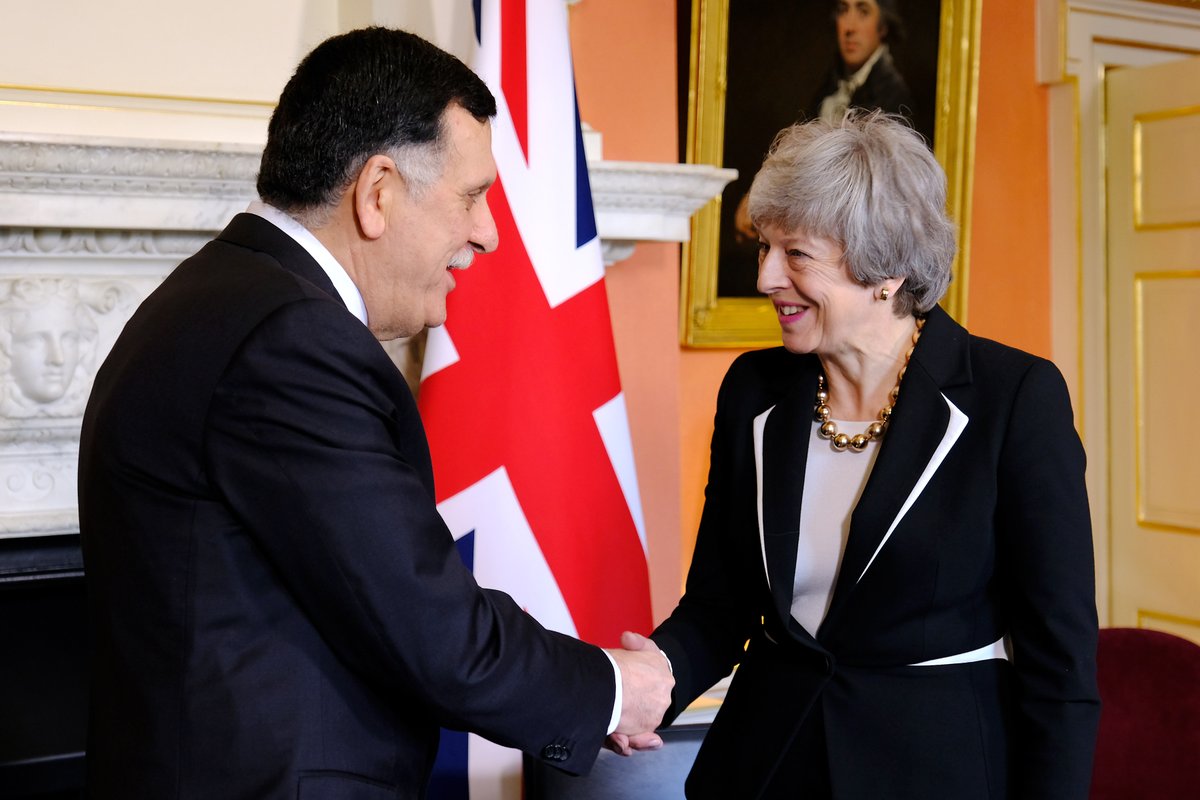
Meanwhile, three people were killed Thursday in a suspected hit-and-run attack by Daesh militants on a town in southern Libya, residents and a military official said, the second such attack within days.
Gunmen stormed the southern town of Ghadwa and opened fire before retreating back into the desert, residents said.
The attack came after nine soldiers were killed on Saturday in an attack claimed by Daesh on a training camp for Haftar’s forces.
In Tripoli, three rockets hit a western suburb overnight close to the heavily fortified UN compound but otherwise there was less fighting than last week as life slowed down with the start of the holy month of Ramadan.




